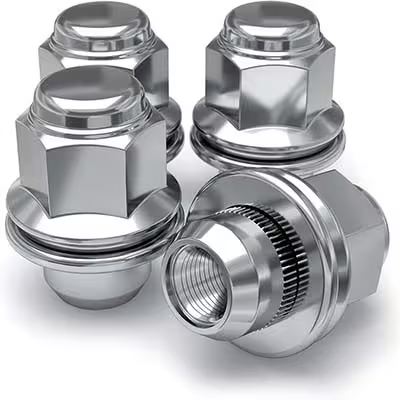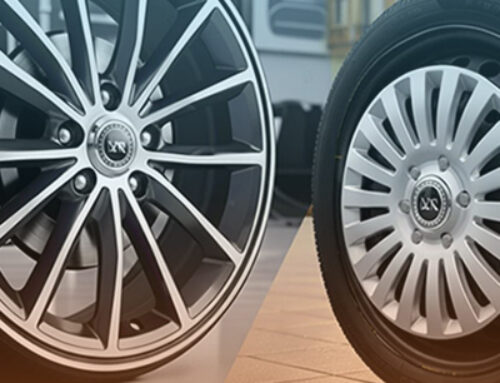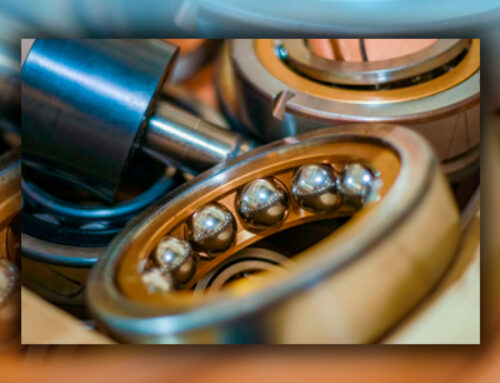Lug Nuts Size
When it comes to maintaining your car, one crucial detail that often gets overlooked is the size of your lug nuts. While they might seem like small components, choosing the right is essential for the safety and performance of your vehicle. In this article, we will dive deep into everything you need to know about how to determine the correct fit, and why it’s important to get it right.
What Are Lug Nuts?
Lug nuts are fasteners used to secure a vehicle’s wheels to the wheel studs and, subsequently, to the axle. These components play a critical role in keeping your wheels attached to your car, providing the necessary stability and security during driving. Although small, lug nuts endure significant stress and pressure, so using the correct size is vital for both safety and functionality.
Understanding Size
The term “lug nuts size” refers to the dimensions of the lug nuts in relation to the wheel studs they are securing. There are two primary measurements to consider:
- Thread Size: The thread size of a lug nut refers to the diameter, pitch, and thread type that match the wheel stud. It is usually expressed in millimeters (for metric systems) or inches (for the standard system). For example, a common metric thread size for lug nuts is M12x1.5, where “M12” indicates the diameter in millimeters, and “1.5” indicates the thread pitch (distance between threads) in millimeters.
- Hex Size: The hex size refers to the width of the lug nut across its flats (the part where a wrench or socket grips the nut). Common hex sizes range from 17mm to 21mm for most cars, though larger vehicles may require bigger sizes.
Why Is Size Important?
Choosing the correct lug nuts size is crucial for several reasons:
- Safety: Using the wrong lug nut size can lead to improper torque and wheel installation. This can cause your wheels to loosen or detach while driving, leading to dangerous situations on the road.
- Performance: Proper lug nut sizing ensures a snug fit on the wheel studs, preventing vibrations and maintaining the structural integrity of your vehicle. This directly impacts your car’s handling and overall performance.
- Preventing Damage: Lug nuts that are too tight can cause damage to the wheel studs, threads, or even the wheels themselves. Conversely, using lug nuts that are too loose can cause them to fall off, leading to wheel separation.
How to Determine the Correct Lug Nuts Size
Knowing your vehicle’s is essential when replacing wheels or lug nuts. Here’s how you can determine the correct size:
- Consult Your Owner’s Manual: The first and easiest place to find the lug nut size for your vehicle is in the owner’s manual. Most manufacturers provide specifications for wheel studs, including the recommended lug nut size.
- Measure the Thread Size: If you don’t have access to the owner’s manual, you can measure the thread size of the wheel studs using a thread gauge. This tool helps you identify the diameter and pitch of the stud threads.
- Check the Hex Size: Use a caliper or wrench to measure the flat-to-flat distance across the lug nut. This gives you the hex size, which is important when selecting the correct wrench or socket for installation.
- Consult a Professional: If you’re unsure, taking your car to a tire or auto service shop is another option. Professionals can quickly determine the correct lug nuts size for your vehicle and help you choose compatible replacements.
Common Lug Nuts Sizes
Lug nuts vary depending on the type of vehicle. Here are some of the most common:
- 12mm x 1.25: Common in Subaru, Nissan, and Infiniti vehicles.
- 12mm x 1.5: Found in many Honda, Toyota, and Mazda cars.
- 14mm x 1.5: Typical for larger cars, SUVs, and trucks like Ford, GM, and Chrysler.
- 1/2″ – 20: Common in American-made vehicles like Jeeps and classic cars.
These are just a few examples, and lug nut sizes vary widely based on the make and model of your vehicle.
Types of Lug Nuts
In addition to size, lug nuts come in several types, each designed for specific wheel applications. Here are the most common types:
- Conical (Tapered) Seat Lug Nuts: These lug nuts have a cone-shaped end that matches the wheel’s lug seat. Conical seat lug nuts are the most common type used in cars and light trucks.
- Mag Seat Lug Nuts: These lug nuts feature a flat, wide seat and are typically used with certain factory wheels or aftermarket alloy wheels. They often come with a washer to help distribute torque evenly.
- Ball Seat Lug Nuts: Similar to conical seat nuts, but the end is rounded like a ball. These are used primarily in certain European vehicles, such as Audi, BMW, and Volkswagen.
- Spline Drive Lug Nuts: These lug nuts have a slim, multi-sided design and require a special key for installation. They are often used with aftermarket wheels.
How to Properly Torque Lug Nuts
Once you’ve found the right for your vehicle, it’s important to torque them correctly during installation. Over-tightening or under-tightening can lead to serious safety issues. Here’s how to do it:
- Use a Torque Wrench: A torque wrench allows you to apply the exact amount of force needed to secure the lug nuts. The manufacturer usually specifies the torque value for your vehicle, which is typically measured in foot-pounds (ft-lbs).
- Follow a Star Pattern: When tightening the lug nuts, follow a star pattern. This ensures even distribution of pressure across the wheel, preventing warping and ensuring the wheel sits flush.
- Re-Torque After Driving: Especially after a tire change or wheel replacement, it’s a good idea to re-torque the lug nuts after driving 50-100 miles. This guarantees they remain properly tightened.
Understanding size is crucial for ensuring the safety and performance of your vehicle. Whether you’re replacing wheels, upgrading your rims, or simply performing maintenance, using the right lug nuts size is essential to avoid potential problems. Always check your vehicle’s specifications or consult a professional to determine the correct size and type of lug nuts for your car.
With this knowledge, you can confidently choose the right lug nuts for your vehicle, ensuring both safety and optimal performance.






